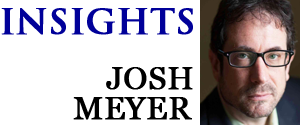Posted from Washington, Aug. 5, 2013
I guess it’s good news that Attorney General Eric Holder Jr. has rolled out new rules for protecting the news media from overly aggressive leak investigations and prosecutions, but forgive me for being a bit skeptical.
Holder only did so after igniting a firestorm of criticism (actually, several of them) for the way he and his boss, President Obama, went after journalists and the government officials who talked to them.
Most egregious was the secret effort to get a wide array of phone records from Associated Press reporters that the administration thought had revealed sources and methods and other classified information about counter-terrorism operations in Yemen and elsewhere. Also noteworthy: the administration’s attempts at criminalizing the behavior of Fox News’ James Rosen (a Medill alum) for working a source at the State Department for classified information about North Korea.
For those and other efforts, Investigative Reporters and Editors Inc. (of which I’m on the Board of Directors) gave Holder a special Hall of Shame award earlier this summer. It’s the first time the international association has ever done it, but all of the committee members—including some from outside IRE—thought it was richly deserved.
Holder’s new policies came about after virtually every media organization on the planet rebelled, forcing the attorney general and his staff to begin holding meetings at the Justice Department. Ostensibly, the meetings were part of a broader effort to find some sort of fair compromise that allows DOJ to investigate what it should, such as improper disclosure of intel sources and methods, while avoiding the overbroad witch hunts that the Obama administration has become known for (far more so than the Bush administration, ironically).
“These revised guidelines will help ensure the proper balance is struck when pursuing investigations into unauthorized disclosures,” Holder announced during the July 12 formal rollout of the new rules (read PDF of the revisions below). Holder’s office also pledged that “members of the news media will not be subject to prosecution based solely on news-gathering activities.”
So what, exactly, do the new guidelines do? According to the Justice Department, federal prosecutors can no longer obtain a search warrant for a reporter’s records unless the reporter is part of a criminal investigation. That raises a lot of questions about how such investigations are defined, and what it means to be part of one. The Justice Department needs to spell that out clearly and transparently, including whether it will disclose to the reporter if and when they become “part” of the investigation.
There are other supposed journalist protections that the Justice Department says it will implement when investigating news outlets and their sources.
One key provision is that, unlike in the AP and Rosen cases, DOJ officials must now provide at least three months of advance notice to media organizations if they intend to search reporters’ records or obtain other kinds of similar evidence. That would give them an opportunity to challenge the government in court. The new guidelines make it harder — but not impossible — for authorities to secretly access reporters’ communications and other records. For instance, it would be permissible if their actions are deemed to pose “risk grave harm to national security” or if “advanced notice and negotiations would [pose] a clear and substantive threat” to an ongoing investigation. In those cases, the Attorney General alone can agree to delay notification for 45 days.
The problem here, again, is that it will all come down to definitions and semantics. For instance, how is the Justice Department going to define “grave harm to national security” and a “threat” to an ongoing investigation? If past cases are any precedent, DOJ will invoke that exception a lot, and in a wide variety of circumstances.
Semantics notwithstanding, some Constitutional law scholars praised the new policies as a step in the right direction, including the Reporters Committee for Freedom of the Press. But the reporters committee, an influential voice on such topics, said the administration should go further, and allow an impartial judge to decide whether investigators can see news media records secretly “because so many important rights hinge on the ability to test the government’s need for records before they are seized.”
Holder also said Congress should pass a shield law protecting journalists from abuses by government investigators. Last week, a Senate panel took a step forward on such legislation. But lawmakers postponed until September a broader debate over whether – and how – Congress defines what constitutes being the kind of journalist who should be protected.
Sen. Chuck Schumer, D-N.Y., a key supporter of a federal media shield law and the sponsor of the legislation, said, “The bottom line is the world has changed, and we’re very careful in this bill to distinguish journalists from those who shouldn’t be protected. Wikileaks and all those others are not protected.”
That debate, over who is—and who isn’t—a journalist worthy of protection is likely to be contentious, and prolonged. So while some progress has been made, the campaign to protect journalists from an overreaching government has a long way to go.
DOJ Review of News Media Policies (Text)
Josh Meyer is director of education and outreach for the Medill National Security Journalism Initiative. He spent 20 years with the Los Angeles Times before joining Medill, where he is also the McCormick Lecturer in National Security Studies. Josh is the co-author of the 2012 best-seller “The Hunt For KSM; Inside the Pursuit and Takedown of the Real 9/11 Mastermind, Khalid Sheikh Mohammed,’’ and a member of the board of directors of Investigative Reporters and Editors.





